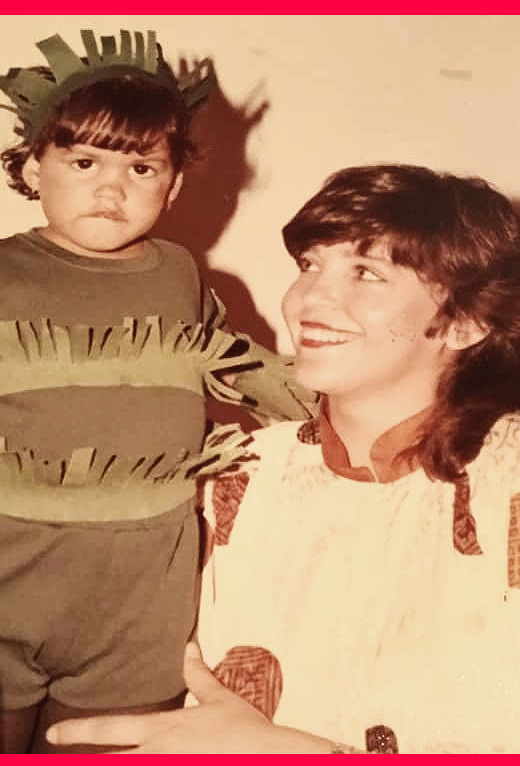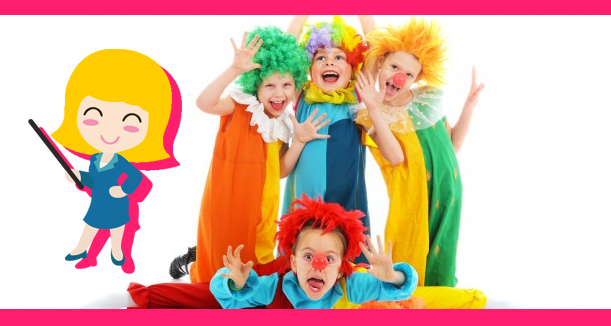
Soy maestra de preescolar y he trabajado con niños por muchísimos años, es un trabajo que me encanta y me llena dicha, siempre es inevitable apegarse a los alumnos y extrañarlos cuando ya debo dejarlos ir a su siguiente etapa educativa.
I am a preschool teacher and I have worked with children for many years, it is a job that I love and fills me with happiness, it is always inevitable to get attached to the students and miss them when I must let them go to their next educational stage.

Una de las cosas que más me ha llamado la atención de mi labor, es aprender sobre los miedos que tienen los niños y este en particular siempre me ha resultado curioso, porque es el más común junto con el miedo a la oscuridad:
¡El miedo a los payasos!
One of the things that most caught my attention about my work is learning about the fears that children have and this one in particular has always been curious to me, because it is the most common along with the fear of the dark:
The fear of clowns!

Cada vez que hay una fiesta en el salón de clases y entran payasos, nunca falta el niño que llora y me pida que lo proteja, y es peor cuando los payasos tratan de acercarse al niño para hacerle saber que no le harán nada malo, porque el niño llora más.
Every time there is a party in the classroom and clowns come in, the child who cries and asks me to protect him is never missing, and it is worse when the clowns try to approach the child to let him know that they will not do anything wrong, because the child cries more.
Coulrofobia

El nombre científico para el miedo a los payasos es Coulrofobia. Esta fobia es más que todo común en niños menores de 5 años y está relacionada a la fuerte impresión que les da ver un cuerpo poco común con una cara poco familiar, casi alien. El maquillaje tan llamativo y la ropa tan exagerada que utilizan los payasos, hacen que para un niño tan pequeño, ni siquiera parezcan humanos.
Los psicólogos han destacado que el miedo se relaciona a que debido al maquillaje, es difícil identificar las emociones del payaso, así como también que son impredecibles con una personalidad explosiva, algo que el niño puede identificar como peligroso.
The scientific name for the fear of clowns is Coulrophobia. This phobia is mostly common in children under 5 years of age and is related to the strong impression that it gives them to see an unusual body with an unfamiliar, almost alien face. The eye-catching makeup and the exaggerated clothing used by clowns make it so that such a young child does not even appear human.
Psychologists have highlighted that fear is related to the fact that due to makeup, it is difficult to identify the clown's emotions, as well as that they are unpredictable with an explosive personality, something that the child can identify as dangerous.
Los niños que son más propensos a la ansiedad tienen mayor posibilidad de tener este miedo!
Children who are more prone to anxiety are more likely to have this fear!
¿Qué hago si mi hijo le tiene miedo a los payasos?

- Hablar con el niño: Es vital la comunicación, preguntarle porqué le da miedo y animarlos a que te cuenten cómo se sienten, respeta su opinión como si fuera la de un adulto. Es importante explicarles qué es un payaso y que no hay nada que temer.
- No te burles: Muchas veces los adultos se burlan de los miedos de los niños, eso está mal, ya que aunado al miedo, pueden sentirse incomprendidos y esto los hará más reacios a contarte sus problemas.
- Ten paciencia: No te cierres a hablar del tema más de una vez, explícale varias veces si es necesario, ten paciencia.
- Muéstrale videos de personas colocándose el maquillaje y disfraz: Esto hará que sea más fácil para el niño de comprender que el payaso es una persona normal.
- Está presente y anímalo: Hazle ver que todo está bien y que sus sentimientos son válidos. El hecho de que les apoyes es muy bueno, no dejes el tema ir simplemente porque crees que lo va a superar con el tiempo.

What do I do if my child is afraid of clowns?
- Talk with the child: Communication is vital, ask why they are afraid and encourage them to tell you how they feel, respect their opinion as if it were that of an adult. It is important to explain what a clown is and that there is nothing to fear.
- Do not make fun of them: Many times adults make fun of children's fears, that is wrong, since combined with fear, they can feel misunderstood and this will make them more reluctant to tell you about their problems.
- Be patient: Do not close yourself to talking about the subject more than once, explain it several times if necessary, be patient.
- Show him videos of people putting on makeup and costumes: This will make it easier for the child to understand that the clown is a normal person.
- Be present and encourage them: Make them see that everything is fine and that their feelings are valid. The fact that you support them is very good, do not let the subject go simply because you think it will get over it in time.
La mayoría de los niños supera el miedo a los payasos mientras crece, sin embargo, es importante que lo hables con tu hijo y le des tu apoyo.
Most children get over the fear of clowns as they grow older, however it is important that you discuss it with your child and give them your support.

Fuentes de las Imágenes:
Fuente 1 Fuente 2 Fuente 3 Fuente 4 Fuente 5
Congratulations @ginalucia! You have completed the following achievement on the Hive blockchain and have been rewarded with new badge(s) :
You can view your badges on your board And compare to others on the Ranking
If you no longer want to receive notifications, reply to this comment with the word
STOPTo support your work, I also upvoted your post!
Do not miss the last post from @hivebuzz: